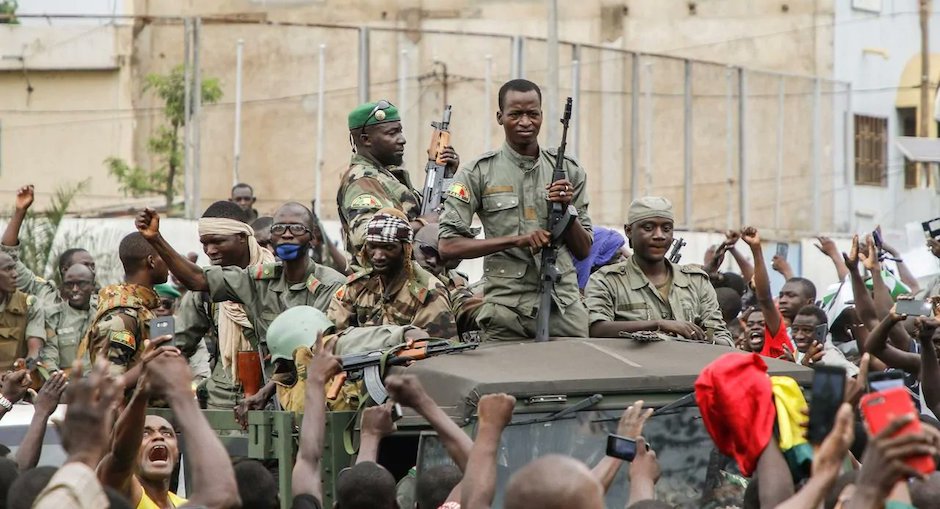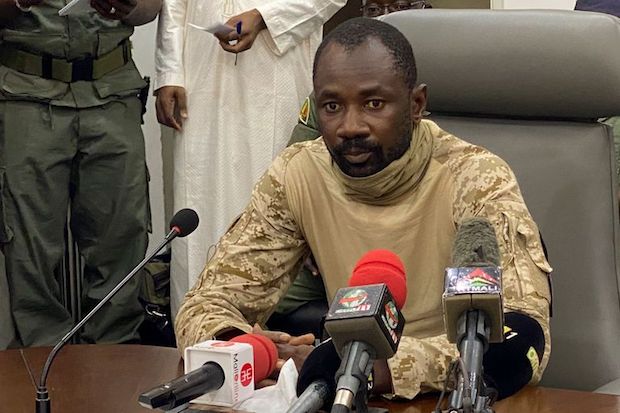Mali: “Christians remain attentive to the military actions and respect for religious freedom”
After the coup, a provisional committee has taken power on an interim basis and continues to define its roadmap. “The situation is ambiguous”, Christians say.
Protestante Digital · BAMAKO · 31 AUGUST 2020 · 16:45 CET

On August, 18, soldiers in Mali detained the country's President, Ibrahim Boubacar Keïta, as well as the Prime Minister, Boubou Cissé. They are both held at a military camp near the capital Bamako.
The coup took place after several mass protests throughout the summer, to demand the resignation of President Keita, denouncing that there was a manipulation of the April 2020 elections.
“The coup d'état had been delayed. The movement of the demonstrators only precipitated the putsch”, Kalane Djibril Touré, General Secretary of the Association of Evangelical Protestant Churches and Missions in Mali (AGEMPEM), a member of the World Evangelical Alliance, told Spanish news website, Protestante Digital.
EU missions in Mali “temporarily on hold but wil resume as soon as possible”
The early rejection of the coup by the international community, has been followed by silence and, in some cases, partial acceptance of the new scenario.
The military, who arrested Keita without bloodshed and have already released him, have set up a National Committee for the Salvation of the People, which is already negotiating the terms of a transition period with the Economic Community of West African States (ECOWAS) and the lifting of the sanctions imposed by the organisation on the country.
ECOWAS demanded Mali’s junta “to put in place an interim government, headed by a civilian or retired military officer, that would last no longer than one year before democratic elections are held to restore the country to civilian rule”, explained one of the entity's delegates and former Nigerian President, Goodluck Jonathan.
The European Union, which condemned the coup d'état and announced the withdrawal of military missions in Mali, has also softened its position and expressed its commitment to the country.
The EU missions in Mali, were “put temporarily on hold because circumstances don't allow them to continue normal activity, but the work will continue and we will resume activities as soon as possible. The EU has invested a lot in Mali and we don't want to waste this effort”, stressed Josep Borrell, EU's foreign policy chief.

Mali, the complex reality of colonial vestiges
For years now, much of the political and social instability in the western region of Africa has taken place in Mali. There has never been a harmonious coexistence between the very different cultures that had to live together after the European imperialist powers divided up the territory.
The main problem is in the northern region, where the Jihadist groups have been joining forces and spreading towards the centre and south of the country.
That is why the United Nations Multidimensional Integrated Stabilisation Mission in Mali (MINUSMA) is the fourth deadliest military deployment of the UN, with 219 soldiers killed since it started in 2013. So far in 2020, it is the third deadliest UN mission, with eleven soldier dead.
A situation which, added to Keita's lack of national support, economic difficulties and the worsening effects of the pandemic, has been described as a “socio-political and security crisis” by the leader of the military insurgents, Colonel Assimi Goita, who, during his press release, also justified his action by “the urgent need to re-establish the rule of law".
In addition to terrorism, in the recent years there has been an increase in tension between ethnic groups such as the Tuaregs, who are shepherds from the north, and the Bozos and Dogons, who are engaged in fishing and agriculture in the southeast and centre of the country.
However, the AGEMPEN assures that “there is no problem of perspective between the different ethnic and religious groups. They have agreed to maintain peace while waiting to see how things go”.
Evangelicals in Mali: “The situation is ambiguous”
“The situation is ambiguous. Everyone is waiting to see what will the military do. For the moment, Christians are living the situation calmly, as just another group of the population”, Touré pointed out.
Despite being a minority that represents barely 3% of the census, both evangelicals and other Christians are holding on to the good historical relationship they have maintained with other religions and with the national authorities. “We still pay attention to the respect of religious freedom and the laicism of the state”, Touré stressed.
“The Christian minority is closely monitoring the actions of the military junta in order to react in defence of its interests, that is, to continue promoting dialogue between all the religious denominations recognised by the state”, he added.
Although there are imams and Muslim leaders with a lot of political influence on the religious map of Mali, for the moment the provisional National Committee for the Salvation of the People does not seem to have any intention of interfering in the religious issues of the country.
Published in: Evangelical Focus - world - Mali: “Christians remain attentive to the military actions and respect for religious freedom”
